Dodge Journey: Link, stabilizer bar
REMOVAL
1. Raise and support the vehicle.
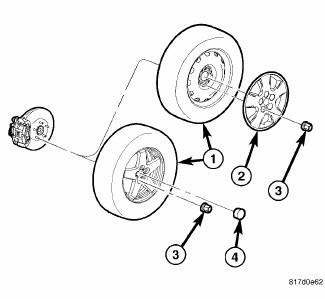
Fig. 60: TIRE AND WHEEL MOUNTING
2. Remove the wheel mounting nuts (3), then the tire and wheel assembly (1).
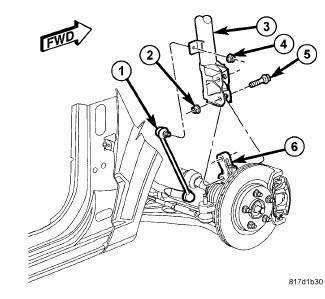
Fig. 61: Strut Mounting To Knuckle
3. While holding the stabilizer bar link (1) stud stationary, remove the nut (4) securing the link to the strut (3).
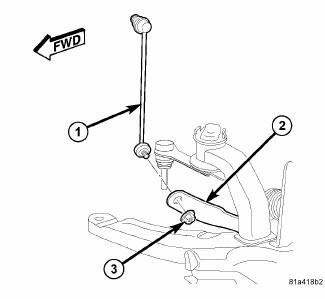
Fig. 62: Stabilizer Link Mounting To Bar
4. While holding the stabilizer bar link (1) lower stud stationary, remove the nut (3) securing the link to the stabilizer bar (2).
5. Remove the stabilizer bar link (1).
INSTALLATION
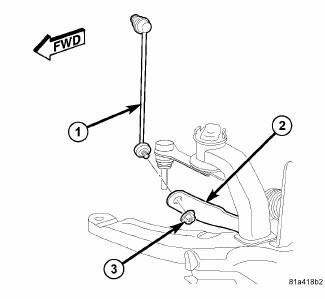
Fig. 63: Stabilizer Link Mounting To Bar
1. Attach the stabilizer bar link (1) to the stabilizer bar (2). Install and tighten the nut (3) while holding the stabilizer bar link lower stud stationary. Tighten the nut to 48 N.m (35 ft. lbs.).
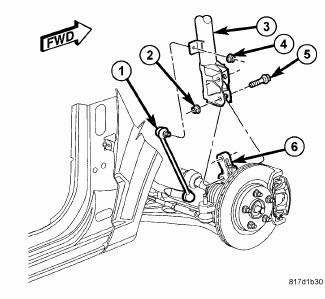
Fig. 64: Strut Mounting To Knuckle
2. Attach the stabilizer bar link (1) to the strut (3). Install and tighten the nut (4) while holding the stabilizer bar link stud stationary. Tighten the nut to 48 N.m (35 ft. lbs.).
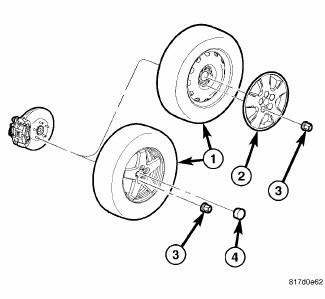
Fig. 65: TIRE AND WHEEL MOUNTING
3. Install tire and wheel assembly (1). Install and tighten wheel mounting nuts (3) to 135 N.m (100 ft. lbs.).
4. Lower the vehicle.
 Installation
Installation
Fig. 51: Front Hub And Bearing Mounting
1. If required, install the hub and bearing (1) by sliding it into the
knuckle.
2. If installing hub and bearing, install the four bolts (2) fastening t ...
See also:
UNIVERSAL CONSUMER INTERFACE (UCI) 0.5 — IF EQUIPPED
NOTE: This section is for sales code RES/REL and
REQ/RET radios only with uconnect . For sales code
RBZ/REN/REZ touch screen radio and REU/REX/RE1
radio, refer to the separate User’s Manual.
Thi ...
ENGINE COMPARTMENT — 2.4L
ENGINE COMPARTMENT — 2.4L
1 — Engine Coolant Reservoir.
7 — Totally Integrated Power Module (TIPM).
2 — Power Steering Fluid Reservoir.
8 — Automatic Transmission Dipstick.
3 — Engi ...
Installation
2.4L
Fig. 17: Removing/Installing Ignition Coil
1. Install ignition coil onto spark plug.
Fig. 18: Removing/Installing Ignition Coil Mounting Bolts
2. Install ignition coil mounting bolt, tigh ...

